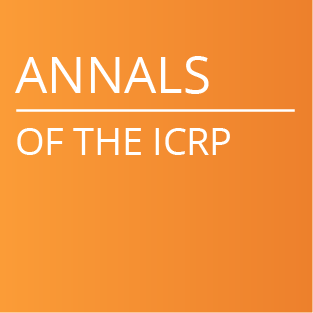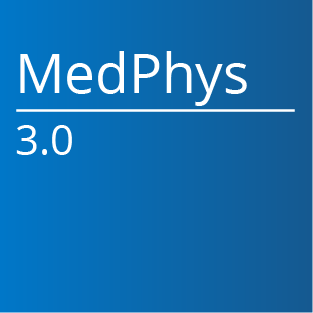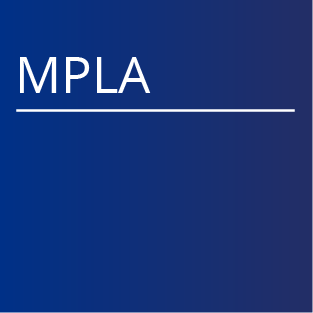|
GUIDELINES FOR ETHICAL PRACTICE FOR MEDICAL PHYSICISTS
PREAMBLE
As Medical Physicists, our primary objective is to use our training, experience, skills and talents for the benefit of humanity. To this end, we recognize our professional relationships with and obligations to other members of society:
(1) Patient
The health, welfare and even the lives of our patients depend upon the skill and dedication with which we Medical Physicists carry out our work. Thus the needs and welfare of the patient are primary in everything we do.
(2) Employer or Client
Medical physicists have the obligation to act as faithful agents for their employers or clients and to devote their skills and talents to further the legitimate aims of their employers. In turn, they have the right to expect true professional consideration from their employers or clients.
(3) Fellow Medical Physicists
Medical Physicists should contribute to the advancement of their profession and should avoid all practices which detract from the stature of Medical Physics.
(4) Non Medical Physicist Colleagues
As we expect from them, our non Medical Physics colleagues - whether they are physicians or therapists, secretaries or janitors - should be treated with honesty and respect. Every effort should be made to create and sustain a sense of teamwork dedicated to the care of our patients.
To accomplish these objectives, the following Guidelines are offered for practicing medical physicists.
- Medical physicists should strive continually to improve their knowledge and skills. In order to improve the medical care of patients, they have the obligation to share their experience and knowledge with their colleagues. They must realize their own personal limitations and seek consultation where appropriate.
- Patient privacy must be respected and confidentiality of patient information must be maintained.
- Medical Physicists are obliged to uphold the honor and dignity of their profession by exhibiting sound moral character and the highest competence in their work. A medical physicist should not render his/her signature in a false or misleading way. Unethical conduct of fellow members should be reported to the AAPM Ethics Committee.
- Remuneration expected should be consistent with the service rendered. Accepting gifts and favors from parties with whom one is dealing professionally, as well as demanding excessive remuneration for professional services, is regarded as unethical and is beneath the dignity of the profession.
- The primary basis of competition with other medical physicists for employment should be knowledge, training, skill and quality of service rendered. To solicit employment in an undignified manner or to compete primarily on the basis of fee, for reduced quality of service, is not worthy of the profession.
- It is considered good practice and a matter of professional courtesy during preliminary employment investigation, to determine whether or not there is a fellow medical physicist whose position and job security might be affected by such employment. When considering employment which could supplant or change the status of the incumbent, the matter should be discussed with this person.
- When retained for professional review of the work of another medical physicist, the physicist should be informed of the review commitment in all situations where the review might compromise the relationship of the physicist with his employer or client.
- Guidelines for Reviewing the Work of Another Medical Physicist:
Preamble: In creating a "Guideline" concerning peer review, the AAPM recognizes there are at least two categories of review which may occur: those initiated by the incumbent physicist as part of an ongoing quality assurance process, and those initiated by someone else. Procedures and guidelines regarding the former are published elsewhere (see www.aapm.org, PICR reports TG-11 and TG-103). In the case of reviews not initiated by the incumbent physicist, the AAPM does not affirm nor reject the process of review. In the interest of protecting the rights of the incumbents in such cases, these are the expectations the incumbent should rightfully enjoy.
Expectations:
- The review should be performed by a Qualified Medical Physicist peer, i.e., a medical physicist who has similar or senior credentials and is familiar with the type of practice setting.
- The Medical Physicist being reviewed should receive a courtesy call from the reviewer to establish mutually agreeable times and to communicate processes and goals for the review.
- The reviewer should have no present or past professional relationship with the entity requesting the review, e.g., no close personal, professional, or training relationship.
- The Medical Physicist being reviewed should receive a copy of the final report, both oral and written.
All care must be exercised when reviewing an incumbent so as not to jeopardize the incumbent's position unnecessarily (e.g., by the expression of personal opinions or judgments beyond those based on the data presented.) The process should be used to create the opportunity for improvement (and/or enhancement of the working environment, equipment, personnel, etc.) for all
- Ethical Guidelines on Vacating a Position:
Upon leaving an institution, Medical Physicists have an obligation to leave all information for which compensation was made. Documentation should be left in an intelligible, legible order and format. Materials generated as well as the notes from work compensated for by the institution is the property of the institution paying the salary or consulting fee of the individual doing the work. Such materials should be left in the possession of the institution unless otherwise instructed by the institution.
Upon termination:
- The Medical Physicist must give sufficient notice to allow for continuity of service. Under normal conditions, 30 days is considered sufficient.
- The Medical Physicist must maintain confidentiality of proprietary information.
- The Medical Physicist must see that all professional documentation, reports, and equipment belonging to the institution or prepared for the institution during employment are returned to the institution.
- Qualification and Guidelines for the Medical Physicist Expert Witness:
On occasion, Medical Physicists are called upon to serve as expert witnesses in their area of expertise in a wide variety of judicial proceedings and other informational or deposition proceedings. There are no known existing criteria for the qualifications of expert medical physics testimony. The public interest would be well served to have expert medical physics testimony when such is required. In order that the best testimony should be provided, expert witnesses should be qualified for their role and should follow a clear and consistent set of guidelines. Recommendations are set forth below. These recommendations are not meant to apply to a physicist who finds himself to be a litigant in a suit.
- Recommended Qualifications for the Medical Physicist Expert Witness
- The Medical Physicist Expert Witness (MPEW) must be active in the specialty or subject of expert testimony.
- The MPEW should be certified by an appropriate body if the expert testimony to be given covers a subject matter that involves the practice of medical physics.
- The MPEW should be familiar with the subject matter of the case at the time of occurrence and should reasonably be expected to have been actively engaged in the subject matter upon which expert testimony will be given for three of the past five years.
- Recommended Guidelines for Behavior of the Medical Physicist Expert Witness
Medical Physicists have an obligation to testify as expert witnesses when appropriate. MPEWs are expected to be impartial and should not adopt a position as an advocate or partisan in the legal proceedings.
- The MPEW should review the facts in the case and testify to the contents of the case fairly and impartially.
- The MPEW should review the standards and the state of the art of the subject matter prevailing at the time of the occurrence.
- The MPEW should be prepared to state the basis of the testimony presented, and whether it is based upon personal experience, specific references, or generally accepted opinion in the MPEWs area of specializations.
- Compensation of the MPEW should be reasonable and commensurate with the time and effort given to preparing for deposition and court appearance. It is inappropriate for a MPEW to link compensation with outcome of the case.
- The MPEW should be aware that transcripts and courtroom testimony are public records, subject to independent peer review.
- Medical Physicists should not testify in cases where there would be a conflict of interest.
Ethics Committee Problem Resolution Procedure
See AAPM Profesional Policy 21: Ethics Complaint Procedure
|



















